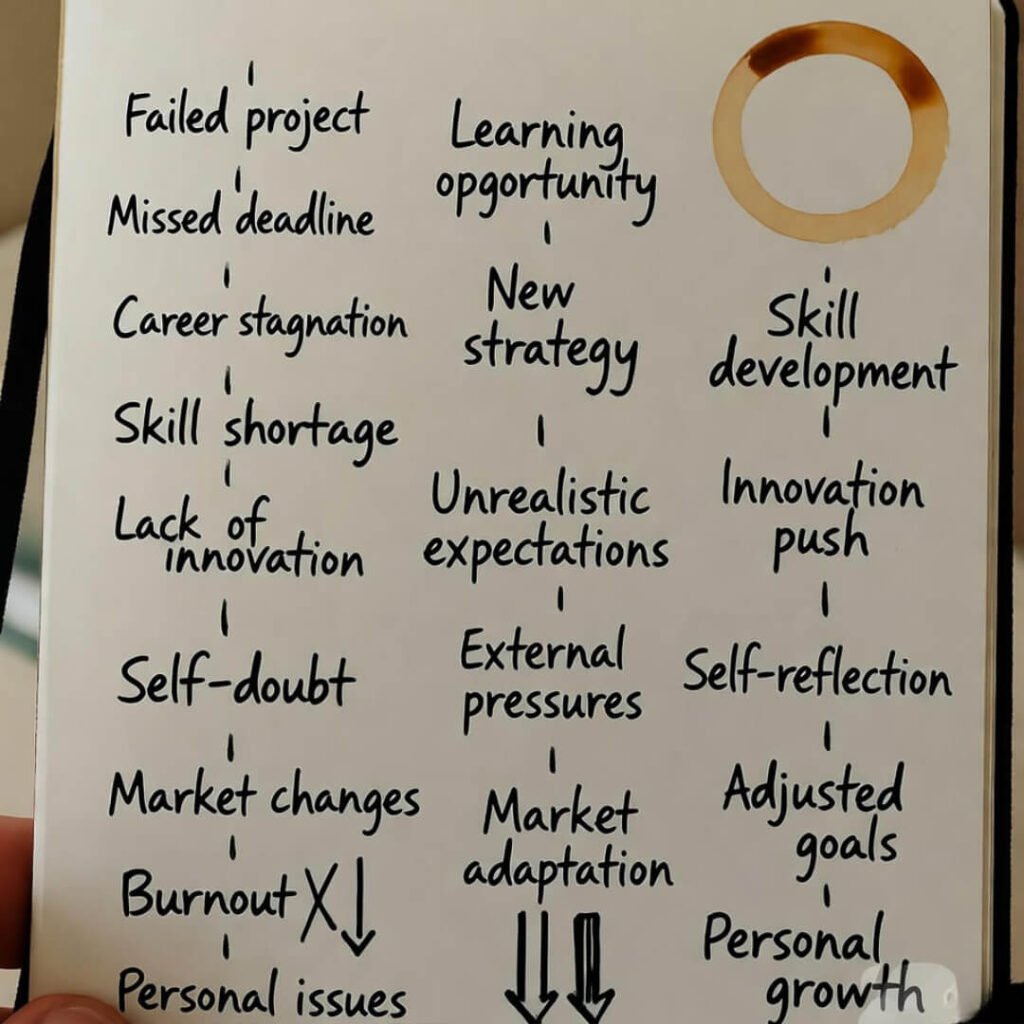Skill development strategies are legit the only reason I’m not still flipping burgers in some Midwest diner, but man, I screwed up so bad at first it hurts to think about. Like, picture this: I’m in my cramped apartment in Chicago right now, rain slapping the window like it’s mad at me, coffee gone cold on the desk next to a pile of sticky notes from last night’s panic session—yeah, that’s where my real skill development strategies kicked in after I bombed a job interview so hard the recruiter ghosted me for weeks. Anyway, I was 28, fresh off a layoff from a dead-end marketing gig, staring at my reflection in the black screen of my laptop, thinking “dude, what now?” That’s when I dove headfirst into upskilling for jobs, but not the polished LinkedIn version—nah, my messy, swear-word-filled path.
Why Skill Development Strategies Saved My Ass from Career Stagnation
Seriously, career advancement tips sound all corporate and shiny, but for me it started with a total meltdown in a Starbucks bathroom—yep, I cried over a spilled latte after realizing my resume was basically a participation trophy. I was in Denver last summer, visiting a buddy, and we were hiking this trail where the air’s so thin you gasp like a fish, and it hit me: my skills were that thin, barely keeping me afloat. So I grabbed my phone, sweat mixing with bug spray, and signed up for this random online course on data analytics—skill development strategies in action, right there on a rocky path with chipmunks judging me. But here’s the raw honesty: I quit halfway through twice, distracted by Netflix binges and this weird obsession with sourdough baking during quarantine leftovers.
My Goofy First Attempts at Upskilling for Jobs That Backfired Hilariously
- Downloaded like five apps for learning coding—ended up rage-quitting because my ancient laptop crashed mid-tutorial, blue screen staring back like “nice try, loser.”
- Joined a local meetup in Seattle (flew there on a whim, jet-lagged AF), networked with pros who talked in acronyms; I nodded along, then spilled beer on the keynote speaker’s shoes—professional skill building at its finest, or worst.
- Tried reading “atomic habits” or whatever, but my version was scribbling notes on napkins while chowing greasy tacos at 2 AM—career pivot stories don’t get more American than that.
Anyway, those flops taught me more than any perfect plan. I remember the sensory hit: the burnt popcorn smell from microwaving “study snacks” that turned into charcoal, the way my fingers cramped from typing bad code till dawn, Chicago wind howling outside like it was cheering my failures.

Skill Development Strategies I Swear By Now (After Eating Dirt)
Fast forward to now, sipping this lukewarm brew in my US nook—skill development strategies that actually stick involve tying them to your dumb daily routines, not some guru’s blueprint. For career advancement tips, I started micro-dosing learning: 10 minutes of Duolingo for Spanish while brushing teeth, foam dripping like my motivation used to. But contradictions? Hell yeah, I preach consistency yet skipped a whole month when my cat got sick and I spiraled into vet bills panic. Check out this Harvard Business Review piece on lifelong learning —they back up the science, but my take’s way less academic, more “I did it hungover.”
Professional Skill Building Hacks from My Flawed Playbook
- Pair skills with sensory anchors— I learned Excel pivots while eating spicy ramen, now the burn reminds me of formulas; weird, but it works for upskilling for jobs.
- Fail publicly on purpose: Posted my cringy first YouTube tutorial on public speaking—views trickled, hate comments stung, but feedback leveled me up faster than solo practice.
- Mix in rest or burn out—took a “skill sabbatical” biking around Austin trails, came back refreshed; career pivot stories need those detours, trust.
One embarrassing anecdote: During a virtual interview from my messy bedroom—laundry mountain in the background—I froze on a question, blurted “uh, skill development strategies?” like an idiot, then recovered by sharing this exact ramen story. They laughed, I got the gig. Go figure.
Weaving Skill Development Strategies into Lifelong Chaos
Look, personal growth hacks aren’t linear; mine zigzagged through a cross-country move from NYC hustle to quieter Midwest vibes, where cornfields mock your ambitions. I contradicted myself hard—pushed for certifications, then ditched one for freelance gigs that paid in exposure (dumb, but built portfolio). Secondary keywords like professional skill building pop up in my late-night journal rants, pages smudged with takeout grease. This Forbes article on reskilling echoes my mess, but with fancier charts.

Unexpected Twists in My Career Advancement Tips Journey
- Discovered mentoring backwards: Taught a newbie my half-baked Photoshop tricks, realized I knew more than I thought—upskilling for jobs through osmosis.
- Used gaming breaks strategically—Animal Crossing “villagers” became metaphors for networking; quirky, but kept me sane.
- Embraced the embarrassment: Shared layoff story on Reddit, got DMs that led to collabs—lifelong learning mistakes turned gold.
The post’s devolving a bit here, sentences running wild like my thoughts at 3 AM, but that’s the point—skill development strategies thrive in imperfection.
Wrapping This Ramble on Skill Development Strategies
Whew, from rainy Chicago window gazes to trail epiphanies, my career climb’s been a hot mess express, but these skill development strategies pulled me through. Contradictions and all—I’m still learning, still screwing up. Anyway, your turn: grab one tip, tweak it to your chaos, and hit me up in comments with your own cringy stories. What’s your wildest upskilling fail? Let’s chat, for real. Try Coursera for structured starts—no affiliate, just what worked for this flawed American.








































